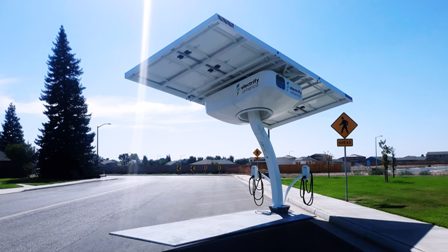
U.S. to Increase Accessibility and Functionality of EV Chargers
U.S. Department of Energy (DOE) and Department of Transportation (DOT) Announced $7 Million funding for New Projects to Accelerate Decarbonization of Medium- and DOE and DOT Announce $7 Million for New Projects to Accelerate Decarbonization of Medium- and Heavy-Duty Freight Transportation, Release Funding Notice of Intent to Increase Accessibility and Functionality of EV Chargers
The Biden-Harris Administration, through the U.S. Department of Energy (DOE), today announced funding to accelerate the creation of zero-emission vehicle corridors that expand the nation’s electric vehicle (EV) charging infrastructure. The Department has awarded $7.4 million to seven projects to develop medium- and heavy-duty electric vehicle (EV) charging and hydrogen corridor infrastructure plans that will benefit millions of drivers across 23 states. Additionally, in coordination with the U.S. Department of Transportation through the Joint Office of Energy and Transportation, DOE announced its intent to release funding to address barriers to a cleaner, safer, more affordable, and more reliable Made in America EV charging network. These funding measures, in coordination with additional clean transportation announcements from the Federal Highway Administration and the White House, will be critical to achieving President Biden’s goals of building out a national network of 500,000 EV chargers and ensuring that 50% of new light-duty vehicle sales are electric by 2030.
The DOE-funded projects will focus on electrification plans for essential and heavily trafficked domestic freight corridors, including those serving Northern and Southern California, the Eastern Seaboard, the Northeast, Southwest, and much of the Midwest. The projects, administered by DOE’s Vehicle Technologies Office (VTO) and Hydrogen and Fuel Cell Technologies Office (HFTO), will advance the President’s decarbonization goals by accelerating the deployment of medium- and heavy-duty EV charging and refueling infrastructure to reduce emissions from freight corridors and the depots, ports, and other facilities those corridors service.
Information Source: Read More “
Energy Monitors , Electric Power , Natural Gas , Oil , Climate , Renewable , Wind , Transition , LPG , Solar , Electric , Biomass , Sustainability , Oil Price , Electric Vehicles,

